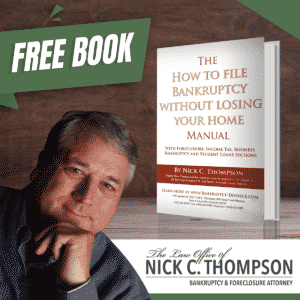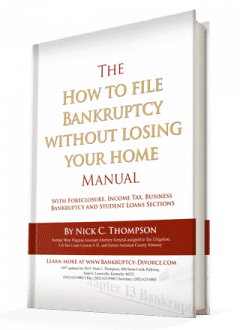Confirming a Chapter 13 Plan: Steps to Confirming It
Taking the time to plan your budget, including your monthly living expenses and categorizing unsecured debts such as medical and legal bills, ensures your Chapter 13 is both approved and affordable. Over 97 % of people qualify for Chapter 7 if they want Chapter 7. However, some attorneys make sure you don’t qualify by overlooking expenses or having unreasonably low expenses. Attorneys fees triple from about 1400 for a simple Chapter 7 to a minimum of about 4,000 for a simple Chapter 13. The office staff who prepare petitions are sometimes paid bonuses for making cases into 13s.
Confirming a Chapter 13 Repayment Plan • Making the Plan Feasible
Imagine you must file a Chapter 13 bankruptcy to repay taxes. Your auto has 230,000 miles on it. You also need a new car before you are required to pay all your disposable income to the court for the next five years in Chapter 13.
With a five-year car loan, you add an expense to your budget. You may now qualify for a Chapter 7 where you didn’t before. For Chapter 13, you pay less back to unsecured creditors for the next five years by adding a new car loan expense. Your car loan payment either becomes part of what you pay back in a Chapter 13 plan, or it becomes one of your monthly budgeted expenses.
The same can happen to necessary home maintenance expenses. Imagine you need a new roof, furnace, or windows. By financing it just before filing, you raise your household expenses. These necessary repairs are now paid for during your Chapter 13. The unsecured creditors are repaid less. Plus, you don’t have to pay for those expenses suddenly during the plan, with nothing budgeted for it.
Planning for reasonable and necessary monthly living expenses.
An attorney who works for you cannot ethically tell you to go out and unreasonably charge up expenses just before filing bankruptcy. But he does need to point out to you that you need a car to get to work, and the house needs a furnace before you file Chapter 13. You have to make enough income to repay the secured and priority debts. A Chapter 13 plan must also include and have enough reasonable expenses, or you will overpay the unsecured debt. Failing to plan for necessary expenses, such as medical and legal bills, can result in overpaying unsecured debt and jeopardizing the success of your Chapter 13 plan. Fail to plan for medical costs, and you won’t have the money for it. Then you won’t make the monthly payments, and the repayment plan fails.
You have to get permission from the judge to borrow for the next five years. It may be better to get some items before filing. Planning allows you to increase expenses, decrease income, or spend down assets like cash. Increasing your expenses and reducing excess assets decreases your plan payment in a 13. This makes the plan affordable and feasible.
But isn’t it wrong or fraud to borrow just before filing. Generally, you can borrow if you repay the creditor you are borrowing from. Just because you filed bankruptcy does not mean you don’t repay a creditor anyway. If you fully intend to repay and do repay the creditor, there is generally no fraudulent intent.
⎆ Avoiding fraud in Chapter 13 while increasing expenses.
Here are the most common rules and examples, although this applies to running up credit card debt. To establish a presumption of fraud, 11 USC Section 523(a)(2) outlines what is and is not a presumption of fraud. The judges essentially look for:
- Non-essential use of a credit card for over 600 dollars within 90 days of filing.
- Purchases of luxury goods like a Rolex watch just before filing would be fraudulent. Buying a replacement for a worn-out car, refrigerator, or stove is not.
- Paying for luxury consumer goods and services is fraudulent. But paying taxes, business debts, or items reasonably necessary for support and maintenance is not.
- Credit card cash advances of over 875 within 75 days of filing are presumed non-dischargeable.
- Only unpaid creditors can complain. No harm. No foul.
This rule, which explains the presumption of fraud if you borrow on a credit card, is only for credit cards. And it only means you may have to repay a cash advance. In the last ten years, I cannot remember one credit card company filing an adversary complaint in bankruptcy court and paying an attorney 250 an hour to perhaps get back a 1000 cash advance. Similarly, if you file a Chapter 13 and your plan pays the car you just bought in full with interest, I doubt the lender will complain about being paid in full.
This rule about a presumption of fraud is meant to catch people who do not plan to repay a debt for an item that was not necessary. It was not meant to prevent people from replacing or maintaining a car, appliance, home repair, or medical treatment, which they need and are repaying. Including reasonable and necessary items in a budget and plan, such as legal bills, lowers payments to the unsecured and makes Chapter 13 feasible and affordable.
Qualifying Chapter 13 expenses, unsecured debts, and income.
Twenty years ago, 90% of the people who filed Chapter 13 could not finish a five-year plan. Many of them had to convert to Chapter 7. That is because people prepare Chapter 13 budgets under pressure. They forget to plan or allow for expenses they will need to pay for during the next five years. Without allowing for these necessary and reasonable expenses, such as child support and medical and legal bills, your Chapter 13 plan must fail. Planning is why you need an experienced Chapter 13 attorney to plan and allow for the reasonable and necessary expenses in your budget. Look at a Schedule J to see the ordinary expenses and our page on often overlooked expenses for qualified expenses, which are not in a standard Schedule J.
There are about 20 factors that our judges use to determine whether a debtor committed fraud in running up an expense. This is an excellent article on fraud, but the major ones are:
- Whether the debtor misrepresented facts.
- Was there damage to the creditor who relied on a misrepresentation?
- The time between the time of filing and the charges.
- The financial condition of the debtor and ability to repay the debt.
- Sudden or unexpected changes in the Debtors ability to repay
- Whether the items were luxuries or were reasonable and necessary.
If you are filing bankruptcy, be sure to plan your budget, including keeping your income tax filings up to date. Look over your necessary and reasonable expenses. In Chapter 7, you should have no money left over to repay your debts. In Chapter 13, have your home and auto in good condition. Chapter 13 requires you to survive for five years. During this time, your car and home must be reliable and affordable.
Confirmation hearing, the Bankruptcy Plan, Best Efforts and sufficient income
When planning Chapter 13, the Bankruptcy code requires a confirmation hearing and your best efforts to repay your creditors. You must have sufficent income to fun the plan and pay priority and secured debts up to date within 5 years. Mortgages, car loans and income taxes less than 3 years need to be accounted for in the Chapter 13 repayment plan.
You must have sufficient disposable income to funs the plan and enough income to pay for necessites or the plan is not feasible. Secured debt must be disclosed and the plan has to show how they will be paid. You may selling property and you may surrender the secured debt property as a way of repaying debt. But the repayment plan is required to show how you will manage priority and secured debt.
Unsecured debts, such as credit card debts and medical bills, can be eliminated and be paid as little as 0% through Chapter 13 bankruptcy if that is all that you can afford. Priority Secured debts like mortgages and car loans often continue after the plan is completed. A bankruptcy petition and repayment plan is not required to pay off a 30 year mortgage in a 5 year plan but you must catch up delinquent payments and not fall further behind.
Federal and state income tax returns
A Chapter 13 bankruptcy repayment plan will often be funded in part by tax refunds because they are not regular household income. Disposable income includes your salary income, social security benefits disability, unemployment compensation, welfare payments and child support as souces of regular monthly income.
It does not include your federal income tax refund. Regular wages, regular income fund the plan but windfalls such as non exempt inheritances, non exempt personal injury awards and the tax refunds are often applied to the total debt in a wage earner’s plan. The bankruptcy trustee will need to know the percentage the credit card and unsecured debts will be repaid. These are eligible debts for repayment but they are rarely paid 100% or caught up to date unless you have so much income or non exempt equity that they must be paid in full.
If you are thinking about filing bankruptcy, don’t delay because timing is crucial. I am here to help you. So, contact my office right away to start the conversation. Nick C. Thompson, Bankruptcy Lawyer: 502-625-0905.

Resources for Bankruptcy
Louisville Kentucky Bankruptcy Forms
How to Qualify for Chapter 7 • Video
How to Win Great Chapter 13 Plan Payments
Budgets for Chapter 7 and 13 Bankruptcy
Including Income, Assets, Debts, and Expenses in a Bankruptcy
